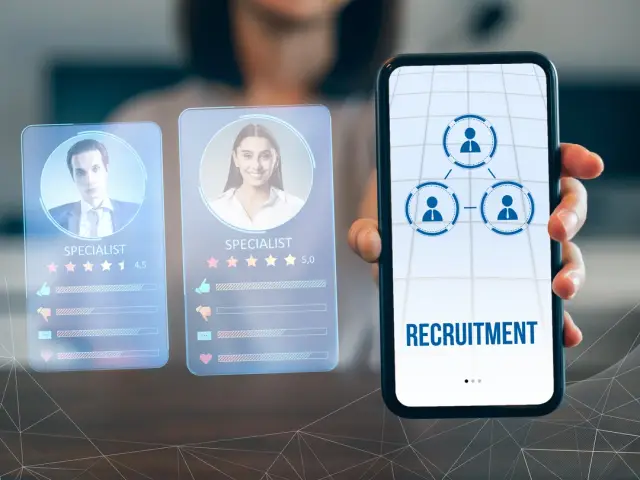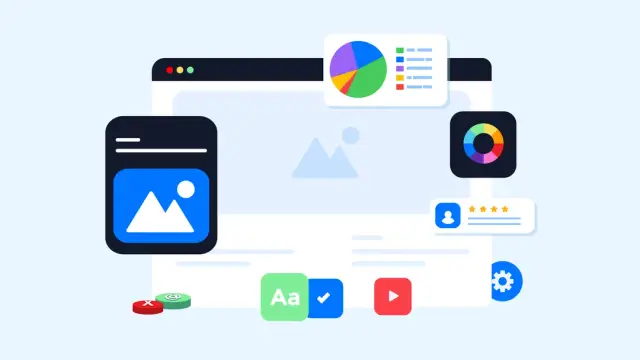The Role of ERP in Managing Human Resources
Discover the key benefits of integrating ERP systems with human resources management and explore best practices for maximizing efficiency and effectiveness in your organization.

The Increasing Importance of HR Management
Today organizations must strive to attract, retain, and develop the best talent to maintain a competitive edge. As a result, efficient human resources (HR) management is becoming increasingly important for the success of any organization. HR management involves a wide range of activities, from recruitment and employee development to payroll, benefits administration, and compliance.
However, traditional paper-based and manual processes can hinder HR departments from reaching their full potential, causing delays, inaccuracies, and overall inefficiencies. This is where modern technology plays a crucial role. By leveraging innovative software solutions, HR management can streamline administrative tasks, optimize core processes, and make more informed decisions.
Understanding the Role of ERP in HR Management
Enterprise Resource Planning (ERP) is a business management software that integrates various functions and processes within an organization into a single unified system. ERP systems can be used in a variety of industries and sectors, including human resources.
When integrated with HR management, ERP systems can streamline HR-related processes, automate tasks, and provide advanced analytics and reporting capabilities. Essentially, ERP can help HR professionals become more efficient, accurate, and strategic in their work, contributing positively to workplace productivity, employee engagement, and overall organizational performance.
Key Benefits of ERP Systems in HR Management
Integrating ERP systems with HR management can offer numerous advantages for organizations:
- Reduction of Manual Tasks: ERP systems can automate many of the repetitive and time-consuming tasks that HR professionals typically handle, such as data entry, benefits administration, scheduling, and payroll processing. This automation saves time and resources, allowing HR teams to focus on more strategic initiatives.
- Centralized Employee Data: ERP systems provide a centralized location for maintaining employee data, ensuring that HR professionals have easy access to up-to-date and accurate information. This centralization also makes it more convenient for employees to access and update their personal information, further streamlining HR processes.
- Improved Data Accuracy: By reducing manual data entry and automating various HR processes, ERP systems help reduce the potential for human error. As a result, organizations benefit from improved data quality, leading to better decision-making and compliance with legal and regulatory requirements.
- Efficient Hiring Processes: ERP solutions often include talent acquisition and applicant tracking tools, streamlining the entire recruitment process. This allows HR professionals to manage job postings, screen candidates, and schedule interviews more efficiently, leading to quicker hiring decisions and reduced time-to-fill rates.
- Easy Access to Relevant Information: ERP systems provide HR professionals with powerful reporting and analytics capabilities, making it effortless to track key HR metrics, identify trends, and generate insights that can drive decision-making and strategic planning.
- Better Monitoring of Performance and Goals: Integrating ERP solutions with HR management enables organizations to better track employee performance and goals, helping HR professionals to identify opportunities for improvement, reward high achievers, and address performance issues proactively.
- Enhanced Compliance: ERP systems can help organizations stay compliant with labor laws and regulations by offering features such as time-tracking, leave management, and reporting. Automating these processes helps ensure accurate record-keeping, reducing the risk of non-compliance penalties and possible legal consequences.

Overall, the benefits of utilizing ERP systems in HR management can lead to more efficient, accurate, and strategic HR processes that contribute positively to the organization's success in attracting, retaining, and developing top talent.
Best Practices for Implementing ERP Solutions in HR
Implementing an ERP solution for human resources management can significantly transform your organization's HR processes, resulting in heightened efficiency and productivity. To make the most of your ERP investment, it's essential to follow best practices for successful implementation. Here are some key strategies:
Conduct a thorough needs assessment
Before selecting an ERP system, conduct a comprehensive analysis of your organization's HR needs and pain points. Determine which HR processes could benefit most from automation and which specific features will help address existing inefficiencies. This assessment will guide you in identifying the most suitable ERP solution for your organization's requirements.
Choose the right ERP system
There are numerous ERP solutions available in the market, each with different features and capabilities. When selecting an ERP system for HR management, consider factors such as scalability, customizability, ease of use, and integration options. Evaluate various systems based on your organization's specific requirements, overall budget, and long-term growth plans.
Ensure data security and compliance
Safeguarding sensitive employee data is crucial. Choose an ERP system that offers powerful security measures, such as encryption and multi-factor authentication. Additionally, ensure your chosen solution complies with relevant data protection regulations, such as the General Data Protection Regulation (GDPR).
Provide comprehensive training
Investing in thorough training is critical for the successful adoption of an ERP system in HR management. Training sessions should cover use-case scenarios, practical exercises, and hands-on demonstrations to encourage employee engagement and facilitate understanding. Moreover, ongoing support should be provided to address any questions or concerns that arise throughout the implementation process.
Set realistic expectations
Implementing an ERP system can take time and may require adjustments to current workflows and processes. It's crucial to set realistic expectations with stakeholders regarding the timeline and resources required for successful implementation. Communicate the benefits of the ERP initiative, while also discussing potential challenges and plans for mitigation.
Monitor progress and collect feedback
As your organization adopts the ERP solution, it's important to regularly monitor progress, track performance metrics, and capture user feedback. Identifying areas for improvement and addressing any concerns promptly can help ensure the ongoing success of your ERP initiative. Continuous improvement should be a fundamental component of your organization's ERP implementation strategy.
Involve stakeholders from all organizational levels
Engaging stakeholders from all levels within the organization is essential for the successful implementation of ERP systems in HR management. This includes upper management, HR leaders, staff, and other operational personnel whose work may be impacted by the new solution. Ensuring everyone is on board and understands the benefits of the ERP initiative will facilitate a smoother transition and enhance user adoption.
Harnessing the Power of AppMaster for ERP Integration in HR Management
With the increasing complexity of human resources management and evolving demands placed on HR professionals, a custom ERP system can significantly streamline processes, reduce manual tasks, and improve decision-making. To capitalize on these benefits, consider harnessing the power of the AppMaster platform to create tailored ERP solutions for your organization's HR management needs. AppMaster is a powerful no-code platform that allows you to create custom backend, web, and mobile applications without extensive coding expertise.
With AppMaster, you can rapidly develop and deploy bespoke ERP systems for HR management, saving time and resources while eliminating technical debt. By leveraging AppMaster's intuitive drag-and-drop interface and visual BP Designer, individuals with little to no programming experience can create custom ERP applications with ease. These applications can be seamlessly integrated with your existing HR processes, offering complete customization over design and interactive functionalities.

In addition to maximizing HR management efficiency, AppMaster's scalable solutions ensure that your ERP applications can grow alongside your organization's needs. Whether you're a small business or an enterprise, AppMaster allows for effortless customization and rapid deployment of ERP solutions tailored to your specific requirements. Through AppMaster's flexible subscription options, organizations of all sizes can enjoy the benefits of a custom ERP system. From free learning and exploration packages to enterprise-grade offerings that feature source code and on-premises hosting, AppMaster has a solution tailored to your organization's needs and budget.
Taking advantage of the AppMasterno-code platform for ERP integration in HR management enables your organization to revolutionize its processes, contributing to the lasting success and growth of your business. Create custom ERP applications that cater to your organization's unique needs, streamline your HR workflows, and enhance overall productivity with the power of AppMaster.
Future Trends and Innovations in ERP for HR
The future of ERP for HR holds exciting possibilities as technology continues to evolve. One major trend is the integration of artificial intelligence (AI) and machine learning (ML) into HR processes. These technologies can analyze large volumes of HR data, providing valuable insights for decision-making, predictive analytics, and identifying patterns for talent management and employee engagement. Another trend is the rise of mobile ERP applications, enabling employees to access HR information and perform self-service tasks on their smartphones or tablets, improving efficiency and convenience.
Additionally, the adoption of cloud-based ERP solutions is expected to grow, offering scalability, accessibility, and cost-effectiveness for HR management. Blockchain technology also shows promise in enhancing HR processes by ensuring secure and transparent management of employee records, contracts, and credentials.
As organizations become more diverse and global, localization capabilities within ERP systems will become increasingly important, allowing for multilingual support and compliance with regional labor laws. The future of ERP for HR is poised to transform the way organizations manage their workforce, streamline processes, and drive employee satisfaction and productivity.
FAQ
Enterprise Resource Planning (ERP) is a type of business management software that integrates various functions within an organization such as finance, human resources, procurement, and customer relations. In HR management, ERP helps streamlines HR processes, automates tasks, and improves decision-making through analytics and reporting.
Integrating ERP systems with HR management provides numerous benefits, including reduction of manual tasks, centralized employee data, improved data accuracy, efficient hiring processes, easy access to relevant information, better monitoring of performance and goals, and enhanced compliance with labor laws and regulations.
ERP systems can support talent acquisition and development through features like applicant tracking, onboarding integration, skills and competency tracking, and managing employee development plans. These tools help HR professionals quickly identify and select the right candidates, while also supporting long-term employee growth and engagement.
Best practices for implementing ERP solutions in HR management include conducting a thorough needs assessment, choosing the right ERP system, ensuring data security, providing comprehensive training, setting realistic expectations, monitoring progress, and involving stakeholders from all organizational levels throughout the implementation process.
AppMaster is a powerful no-code platform that can be used to create backend, web, and mobile applications, including ERP solutions, tailored to an organization's specific HR requirements. With AppMaster, you can rapidly develop and deploy custom ERP systems for HR management without requiring extensive coding expertise, saving time and resources while eliminating technical debt.
Limitations or challenges associated with using ERP systems in HR management may include high upfront costs, complexity of implementation, data migration issues, resistance to change among employees, and ongoing maintenance requirements. However, these issues can be mitigated by following best practices for ERP implementation and working with experienced vendors or partners.
Examples of ERP systems integrated with HR management include SAP SuccessFactors, Oracle HCM Cloud, Workday HCM, Microsoft Dynamics 365 Human Resources, and Infor CloudSuite HCM. These solutions offer a wide range of HR management capabilities, such as talent acquisition, time tracking, performance management, and learning management, all within a single, integrated platform.
Yes, many ERP solutions can be customized to better suit your organization's HR needs. With no-code platforms like AppMaster, you can create custom ERP systems designed specifically with your organization's unique requirements, processes, and goals in mind, providing a more tailored solution to address your HR challenges.
Yes, small and medium-sized businesses (SMBs) can benefit from ERP integration for their HR management. ERP systems can help streamline processes, improve data accuracy, and provide valuable insights for decision-making, which can be vital for the growth and success of SMBs. By selecting a scalable and flexible ERP solution, SMBs can enjoy the benefits of ERP while keeping costs under control.
Yes, it is possible to integrate existing HR software with an ERP system. Many modern ERP solutions offer APIs and integration capabilities that enable seamless data sharing between disparate systems. This allows organizations to leverage the best features of their existing HR software while also taking advantage of the benefits of a comprehensive ERP system.





